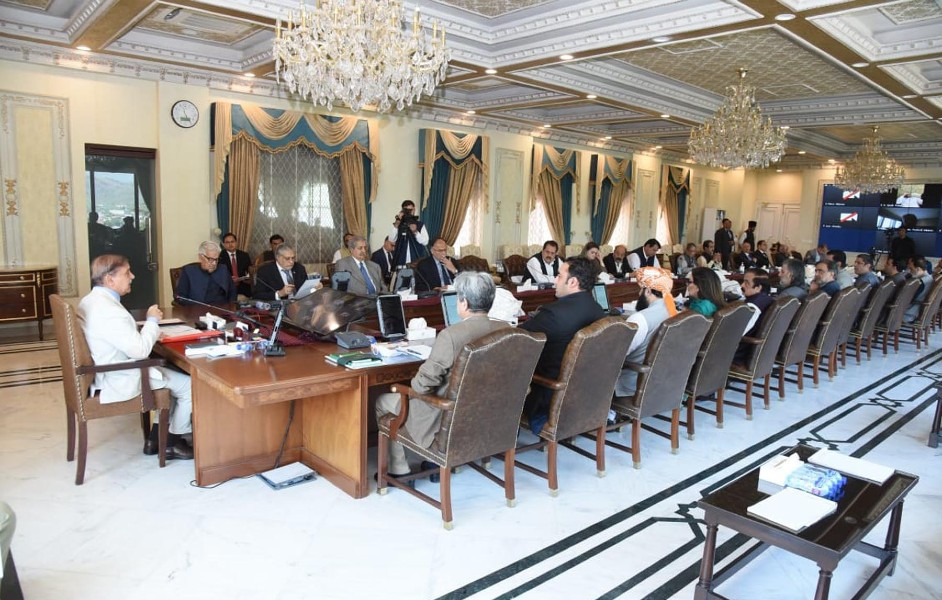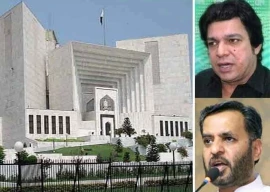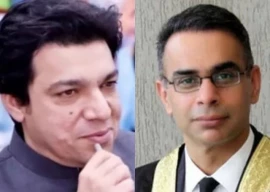
In a surprising turn of events, the federal government has introduced amendments to the National Accountability (Amendment) Ordinance, 2023, which raises concerns about potential political manipulation ahead of the upcoming general elections.
The ruling coalition, which opposed similar changes while in opposition, now faces accusations of using the anti-corruption law as a tool for "political engineering."
Senate Chairman Sadiq Sanjarani, acting as the president in the absence of President Dr Arif Alvi, swiftly implemented several amendments to the NAB Ordinance of 1999 through executive decree. This method of legislation, carried out in the middle of the night, has drawn criticism as its primary target seems evident, even to those with minimal political awareness. The ordinance was signed on the advice of Prime Minister Shehbaz Sharif.
Legal experts argue that these amendments expose the true intentions behind the revised law, creating the perception that the anti-corruption body is being used against political opponents once again. Former special prosecutor of NAB, Imran Shafique, stated that the government has deviated from its previous positions, both within and outside parliament, and the new ordinance appears to be specifically aimed at targeting the opposition, particularly Imran Khan, his family members, and party leaders.
The legal experts further highlight that the timing of the ordinance is crucial, as it will remain in effect for the next 120 days, coinciding with the upcoming general elections. This allows the government to potentially target the opposition through NAB during this period, including Imran Khan, before a new government comes to power. Shafique questions the government's decision to bypass parliament for these amendments, suggesting that their purpose may be to keep Imran Khan behind bars for months, including in the Al-Qadir Trust case, by extending the remand period from 14 to 30 days.
One of the significant changes introduced is the burden of proof being shifted onto the accused, allowing courts to sentence individuals based on presumption unless proven otherwise. These amendments have sparked concerns about the fairness and impartiality of the revised law.
The ordinance states that it shall come into force at once and “shall be deemed to have taken effect on and from the commencement of the National Accountability Ordinance, 1999”.
A new Section 14-A (presumption against accused accepting illegal gratification) has been inserted in the ordinance. It states that if it is proved that an accused person has accepted or obtained, or has agreed to accept or attempted to obtain, for himself or for any other person any gratification, other than legal remuneration, or any valuable thing, or any pecuniary advantage from a person or any agent of a person, for any favour shown or promised to be shown by the accused, “it shall be presumed, unless the contrary is proved, that he accepted or obtained, or agreed to accept or attempted to obtain, that gratification or that valuable thing or pecuniary advantage for himself or some other person, as the case may be”.
Section 14-A (3) deals with the property or pecuniary resources disproportionate to an accused person’s known sources of income. It states: “In any trial of an offence punishable under this Ordinance, the fact that the accused person or any other person on his behalf, is in possession, for which the accused person cannot satisfactorily account, of property or pecuniary resources disproportionate to his known sources of income, or that such person has, at or about the time of the commission of the offence with which he is charged, obtained an accretion to his pecuniary resources or property for which he cannot satisfactorily account, the Court shall presume, unless the contrary is proved, that the accused person is guilty of the offence of corruption or corrupt practices and his conviction therefore shall not be invalid by reason only that it is based solely on such a presumption.”
Through an amendment in Section 24, it has been stated that the “Chairman NAB may also issue warrant of arrest during the course of inquiry if the accused is not joining inquiry despite notices or willfully does not cooperate in such inquiry”.
In addition, NAB has been given power to detain an accused person for 30 days instead of 14 – an amendment which the ruling coalition would have cried foul when in opposition.
Through substitution in Section 26 (tender of pardon), the NAB chairman may, with a view to obtaining the evidence of any person supposed to have been directly or indirectly concerned in or privy to any offence at any stage of inquiry, investigation or trial, “tender a full or conditional pardon to such a person on condition of his making a full and true disclosure of the whole of the circumstances within his knowledge relating to the said offence including the names of the persons involved therein whether as principals or abettors or otherwise.”
In the case of a full pardon, it adds, the person to whom pardon has been granted under the section shall not be tried for the offence in respect of which the pardon was granted. Also, the ordinance empowers the NAB chairman to appoint advisers, consultants, and experts on payment of such fee or remuneration as he may determine to assist him in performing the functions of NAB and the discharge of his duties under the ordinance.
Information and law ministers were approached for comments but they didn’t respond.


































COMMENTS
Comments are moderated and generally will be posted if they are on-topic and not abusive.
For more information, please see our Comments FAQ